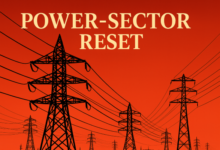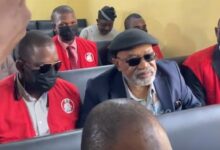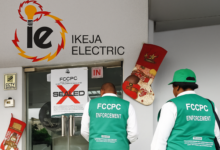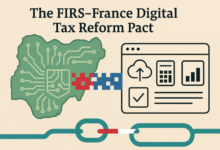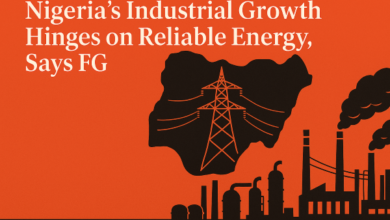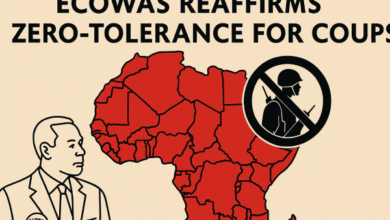Reps to probe CBN’s N200bn loan to DISCOs under NMMP over disbursement, repayment and meter targets

In a significant move reflecting renewed legislative scrutiny of Nigeria’s power and monetary policy interface, the House of Representatives has launched a formal probe into the N200 billion loan facility disbursed by the Central Bank of Nigeria (CBN) to Electricity Distribution Companies (DISCOs) under the National Mass Metering Programme (NMMP). The programme, initiated in 2020, was billed as a landmark intervention to close Nigeria’s vast metering gap, combat estimated billing, and enhance transparency in electricity consumption and revenue collection.
Announcing the development in Abuja on Wednesday, Rep. Uchenna Harris Okonkwo (LP-Anambra), Chairman of the House Committee on NMMP Loan Disbursement, disclosed that a 19-member sub-committee had been inaugurated to undertake a comprehensive audit of the loan’s allocation, utilisation, and repayment status across the 11 licensed DISCOs.
Backdrop: NMMP—A Bold but Contested Initiative
Launched with much fanfare in 2020, the NMMP was a collaborative effort between the CBN, the Nigerian Electricity Regulatory Commission (NERC), and stakeholders within the Nigerian Electricity Supply Industry (NESI). It aimed to deploy millions of prepaid electricity meters to consumers at no cost, in a three-phased rollout designed to reduce revenue leakages and improve efficiency in power distribution.
Under Phase 0 of the NMMP, the CBN committed N59.28 billion for the procurement and installation of one million meters. The loan carried a relatively moderate 9% interest rate with a two-year moratorium, a structure intended to ease the financial burden on DISCOs and encourage mass deployment. However, Rep. Okonkwo revealed that actual disbursement stood at N55.4 billion, with only 962,832 meters reportedly installed—falling short of the one million meter target. This discrepancy is now central to the parliamentary inquiry.
Where Are the Meters, Where Is the Money?
Even more troubling, according to preliminary findings, is the lack of clarity around repayments by the DISCOs. While they received N55.4 billion under Phase 0, the amount repaid to the apex bank remains murky—particularly when factoring in the accrued 9% interest. With transparency and accountability in public finance management a major legislative priority, lawmakers are demanding detailed disclosures from all parties involved, including the CBN, DISCOs, NERC, and affiliated vendors.
Phases 1 and 2 of the NMMP—envisaged to be jointly funded by Deposit Money Banks (DMBs) and the World Bank for the installation of 1.5 million and 4 million meters respectively—are yet to take off meaningfully. Lawmakers argue that this stalling undermines public trust and compromises the broader objectives of the energy reform agenda. It is hoped that the probe will unravel the true situation.
Legislative Oversight and Economic Stakes
The probe, anchored on Sections 88(1) and (2) of the 1999 Constitution, signals growing legislative concern over the governance of interventionist lending by the CBN, particularly in the context of Nigeria’s fragile electricity infrastructure and ballooning quasi-fiscal obligations. With inflationary pressures rising and energy poverty worsening, the effectiveness—or otherwise—of the NMMP could have far-reaching implications for investor confidence, household budgets, and the CBN’s own credibility.
The sub-committee, comprising legislators from diverse geopolitical zones, is expected to engage in site visits, forensic financial analysis, and stakeholder consultations. Members include Reps. Obed Shehu, Ali Shettima, Abel Fuah, Salisu Koko, Ahmed Munir, Sani Umar Bala, Gbefwi Jonathan, Abdulmaleek Danga, Chinedu Obika, Okunlola Lanre, Abass Adekunle, Akinosi Akanni, Obuzor Victor, Peter Akpanke, Ngozi Lawrence, Ogah Amobi Godwin, and Ikeagwuonu Onyinye, among others.
Conclusion: A Test for Reform and Accountability
As Nigeria confronts a turbulent macroeconomic landscape and a structurally weak power sector, the NMMP probe may well become a litmus test for institutional reform and financial stewardship. For the CBN, it is also an opportunity to defend the transparency and impact of its intervention programmes. For DISCOs, whose operational efficiency and corporate governance have long been under scrutiny, the coming weeks will determine whether the NMMP was a genuine effort to power Nigeria’s future—or yet another missed opportunity in the country’s long, dark dance with electricity reform.


